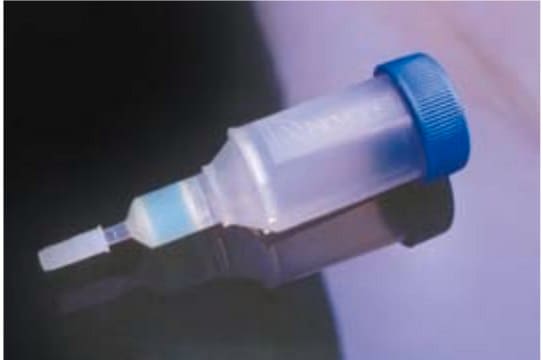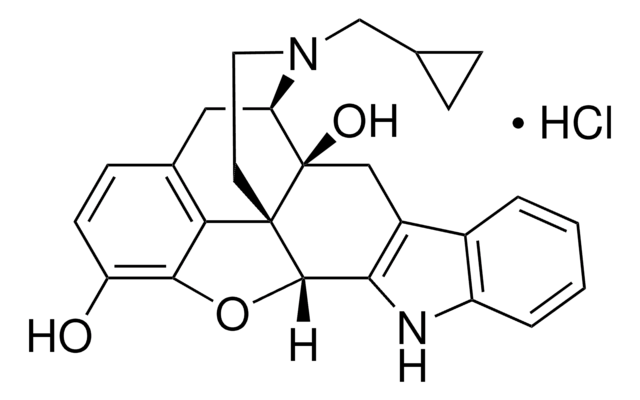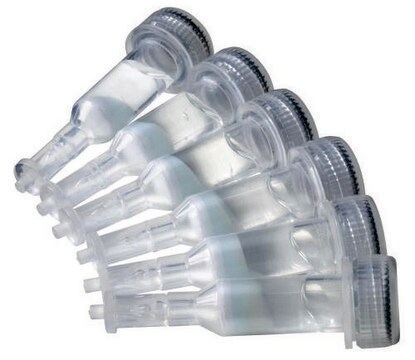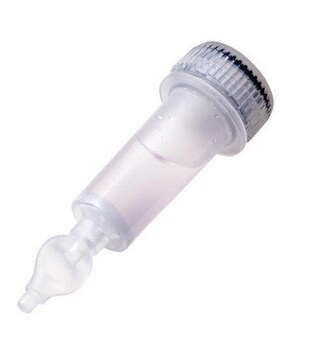P6611
HIS-Select® Nickel Affinity Gel
(1:1 suspension in a 20% ethanol solution)
Synonym(s):
Ni-NTA resin, nickel charged agarose
About This Item
Recommended Products
conjugate
magnetic beads
Quality Level
form
(1:1 suspension in a 20% ethanol solution)
feature
hydrophilic
packaging
pkg of 1 mL
pkg of 100 mL
pkg of 25 mL
pkg of 5 mL
pkg of 500 mL
concentration
1.5-2.4 mL/mL (suspension in packed gel)
technique(s)
protein purification: suitable
color
faint blue to very dark blue
matrix
6% Beaded Agarose
capacity
>15 mg/mL, gel binding capacity (protein)(with an approx. 30 kDa protein)
transition temp
flash point 32 °C (closed cup)
storage temp.
2-8°C
General description
Application
Features and Benefits
- High selectivity for higher purity.
- Unique non-charged hydrophilic linkage reduces non-specific binding.
- Binding capacity for histidine-tagged protein is greater than 15 mg/mL.
- Binding under denaturing or non-denaturing conditions.
- One-step purification.
- Minimizes unwanted ionic interactions.
- Minimal nickel leaching.
- Bead size: 45-165 μm.
Linkage
Physical form
Storage and Stability
Legal Information
related product
Signal Word
Warning
Hazard Statements
Precautionary Statements
Hazard Classifications
Flam. Liq. 3
Storage Class Code
3 - Flammable liquids
WGK
WGK 3
Flash Point(F)
89.6 °F - closed cup
Flash Point(C)
32 °C - closed cup
Choose from one of the most recent versions:
Certificates of Analysis (COA)
Don't see the Right Version?
If you require a particular version, you can look up a specific certificate by the Lot or Batch number.
Already Own This Product?
Find documentation for the products that you have recently purchased in the Document Library.
Customers Also Viewed
Related Content
Protein purification techniques, reagents, and protocols for purifying recombinant proteins using methods including, ion-exchange, size-exclusion, and protein affinity chromatography.
Protein expression technologies for various expression systems supporting research, therapeutics, and vaccine production.
Investigate in vitro protein-protein interactions with pull-down assays, utilizing affinity, GST pull-down, TAP, and co-immunoprecipitation methods.
Our team of scientists has experience in all areas of research including Life Science, Material Science, Chemical Synthesis, Chromatography, Analytical and many others.
Contact Technical Service









